Sigma Xi Distinguished Lecturers, 2014 - 2015
Abstracts
Potential hosts should contact lecturers directly to book events. In making arrangements, hosts should be specific about dates, lecture topic, scope of the lecturer's visit and any special accommodations that may be called for.
Each lecturer has designated his or her topic(s) for three different types of audiences. Where more than one level is shown, the lecture can be adjusted to the needs of the audience:
- P (Public)
Aimed at presenting scientific issues of general concern to a public audience.
- G (General)
Intended for a normal Sigma Xi audience of both scientists and other scholars representing a broad range of disciplines. - S (Specialized)
Aimed at scientists and students in fields that are closely related to that of the lecturer.
Ana Barros (American Meteorological Society)
Professor of Civil and Environmental Engineering, Duke University 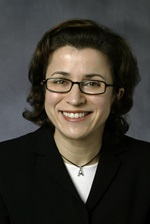
Email: barros@duke.edu
Phone: 919-660-5536
Web: http://www.cee.duke.edu/faculty/ana-barros
Dr. Barros is a member of the National Academies' Climate Research Committee (CRC), and a member of the US National Committee for the International Hydrology Program (IHP) of the UNESCO. Her primary research interests are in Hydrology, Hydrometeorology and Environmental Physics with a focus on water-cycle processes in the coupled land-atmosphere-biosphere system particularly in regions of complex terrain, the study of multiscale interface phenomena in complex environments across the Earth Sciences, remote sensing of the environment (precipitation, clouds, soil moisture, and vegetation), climate predictability and risk assessment of natural hazards.
Theme 1 - Complex Environmental Systems, Land-Atmosphere Interactions, LULCC, Sustainability and Climate
-
Engineering the Planet – Water and Energy Transactions at the Climate-Biodiversity-People Nexus
-
Resilience and Sustainability of Mountain Hydroclimates and Freshwater Resources
-
Water Cycle and Ecosystems in Mountain Regions South America/Andes-Amazon; Southern Africa/Zambezi; US/Appalachians
Theme 2 - Extreme Events, Understanding/Quantifying/Managing Risk, Adaptation
-
Engineering the Future - LULCC, Lifeline Infrastructure and Climate Change Adaptation
-
Anatomy of Environmental Disasters (unintended) Interruption of Biophysical Networks, Cascading Impacts, Tipping Points and Natural Hazards
Theme 3 - Remote Sensing
-
Earth Watching - Monitoring the Water Cycle from Space
-
Earth Watching - Monitoring Change from Space
-
Earth Watching - Applications Using Remote Sensing Observations
Theme 4 - STEM Education and Outreach
Andrea Bertozzi
Betsy Wood Knapp Chair for Innovation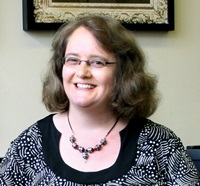 and Creativity and Professor of Mathematics, University of California at Los Angeles
and Creativity and Professor of Mathematics, University of California at Los Angeles
Email: bertozzi@math.ucla.edu
Phone: 310-825-4340
Web: http://www.math.ucla.edu/~bertozzi
- Mathematics of Crime (P,G,S)
- Image Processing and Large Data Analysis (G,S)
- Swarming by Nature and by Design (G,S)
- Mathematics in the Real and Imaginary World (P)
Andrea Bertozzi is an applied mathematician with expertise in nonlinear partial differential equations and fluid dynamics. She also works in the areas of geometric methods for image processing, crime modeling and analysis, and swarming/cooperative dynamics. Bertozzi completed all her degrees in Mathematics at Princeton. She was an L. E. Dickson Instructor and NSF Postdoctoral Fellow at the University of Chicago from 1991-1995. She was the Maria Geoppert-Mayer Distinguished Scholar at Argonne National Laboratory from 1995-6. She was on the faculty at Duke University from 1995-2004 first as Associate Professor of Mathematics and then as Professor of Mathematics and Physics. She has served as the Director of the Center for Nonlinear and Complex Systems while at Duke. Bertozzi moved to UCLA in 2003 as a Professor of Mathematics. Since 2005 she has served as Director of Applied Mathematics, overseeing the graduate and undergraduate research training programs at UCLA. In 2012 she was appointed the Betsy Wood Knapp Chair for Innovation and Creativity. Bertozzi's honors include the Sloan Research Fellowship in 1995, the Presidential Early Career Award for Scientists and Engineers in 1996, and SIAM's Kovalevsky Prize in 2009. She was elected to the American Academy of Arts and Sciences in 2010 and to the Fellows of the Society of Industrial and Applied Mathematics in 2010. She became a Fellow of the American Mathematical Society in 2013. Bertozzi serves on the editorial boards of twelve journals: SIAM J. Math. Anal., SIAM's Multiscale Modeling and Simulation, Interfaces and Free Boundaries, Applied Mathematics Research Express (Oxford Press), Applied Mathematics Letters, Mathematical Models and Methods in the Applied Sciences (M3AS), Communications in Mathematical Sciences, Nonlinearity, and Advances in Differential Equations, Journal of Nonlinear Science, Journal of Statistical Physics, and Nonlinear Analysis Real World Applications.
Arlen F. Chase
Pegasus Professor and Chair of Anthropology,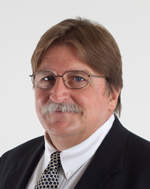 University of Central Florida
University of Central Florida
Email: arlen.chase@ucf.edu
Phone: 407-823-2227
Web: www.caracol.org
- Tombs, Texts, and Time: The Archaeology of an Ancient Maya Capital City (PG)
- Airborne LiDAR at Caracol, Belize and its Implications for Archaeology(PG)
- Transitions and Transformations in the Archaeology of the Ancient Maya(PG)
Arlen F. Chase is a Pegasus professor and the chair of the anthropology department at the University of Central Florida. He currently co-directs excavations at Caracol, Belize, the largest recorded Classic Period (A.D. 250-900) Maya center; before that, he was involved in research projects at Santa Rita Corozal, Belize and at Tayasal, Guatemala. His research focuses on archaeological method and theory as applied to the Maya area with particular emphasis on ancient urbanism, ceramic analysis, landscape archaeology, and the complex relationship that exists between Maya hieroglyphic writing and archaeological data. Most recently, he has pioneered efforts in applying laser-based remote sensing, or LiDAR, to the ancient Maya landscape. He has authored over 125 peer-reviewed articles and book chapters as well as multiple books. Further information and PDFs of his writings may be found at www.caracol.org.
Robert Clarke (National Cancer Institute)
Professor and Dean for Research
Georgetown University Medical Center
Phone: 202-687-9364
Fax: 202-687-2085
E-mail: clarker@georgetown.edu
Web: http://clarkelabs.georgetown.edu/res_robert
- Hormones and breast cancer (P,G,S)
- Modeling resistance to hormone based therapies in breast cancer(G,S)
- What can we learn about breast cancer by combining mathematics and computer science in a systems biology approach to research? (P,G,S)
Dr. Robert Clarke is a Professor of Oncology at Georgetown University Medical Center and an elected Fellow of the Royal Society of Chemistry, the Royal Society of Medicine, and the Royal Society of Biology (U.K.). A native of Northern Ireland, he earned a D.Sc. in 1999, a Ph.D. in 1986, and a M.Sc. in 1982 (each in Biochemistry) from the Queen's University of Belfast, and a B.Sc. (Biological Sciences) in 1980 from the University of Ulster. Dr Clarke completed his postdoctoral training in 1988 as a Breast Cancer Study Group Fellow at the Medical Breast Section of the National Cancer Institute, N.I.H. He joined the Faculty at Georgetown University in 1989, where he served as Secretary/Treasurer of the Georgetown University Faculty Senate (2004-2007). He serves on the editorial board of over a dozen peer review journals and he is currently chair of the N.I.H. Basic Mechanisms of Cancer Therapeutics grant review panel (2011-2013). Dr. Clarke studies how hormones and growth factors affect breast cancer. Focusing initially on the interactions among hormones and anticancer drugs, his work expanded to include the cellular and molecular mechanisms that explain how breast cancers become resistant to hormone and cytotoxic drug chemotherapies. He and his colleagues developed a series of hormone resistant breast cancer models that are widely used in the field. Dr. Clarke is currently developing and applying novel bioinformatic methods in translational breast cancer studies. Taking a systems biology approach, he and his collaborators have recently described a novel molecular signaling network that incorporates the unfolded protein response to endoplasmic reticulum stress. This signaling network contributes directly to the hormonal regulation of breast cancer cell proliferation and cell death. Dr. Clarke has authored/co-authored over 225 publications and he has several patents, mostly in the field of breast cancer research.
Debra Fischer
Professor of Astronomy, Yale University 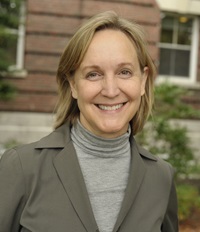
Email: debra.fischer@yale.edu
Phone: 203-432-1613
Web: Click Here
- The Search for Habitable Worlds (P)
- Putting our Solar System in Context: Comparative Planetology (G)
- How will we find 100 Earths? (G)
Krishna L. Foster
Professor of Chemistry California State University, Los Angeles 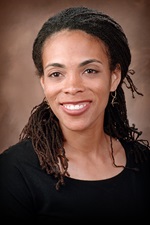
Email: kfoster@calstatela.edu
Phone: 323-343-6490
- Oxygenated-PAH as a source of singlet oxygen in the lower atmosphere (S)
- Elucidating the role of aged particulate matter on air quality (G)
- Investigating the role of fine particles on air quality (P)
Dr. Foster was awarded a B.S. in chemistry from Spelman College in 1992 and a Ph.D. in physical chemistry from the University of Colorado at Boulder in 1998. Her dissertation investigates the interaction of surrogate polar stratospheric clouds with hydrogen halides, and was prepared under the direction of Drs. Margaret A. Tolbert and Steve M. George. Her postdoctoral research examined the contribution of sea-salt particles to the oxidizing capacity of the lower-atmosphere. This work was conducted at the University of California, Irvine in the laboratory of Dr. Barbara Finlayson-Pitts. She joined the faculty of California State University, Los Angeles (CSULA) in 2000 as an Assistant Professor, was promoted with tenure to Associate in 2006, and became a Full Professor in 2011. Her current research focuses on elucidating the role of aged particulate matter on air quality.
James Giordano
Chief, Neuroethics Studies Program, Edmund D. 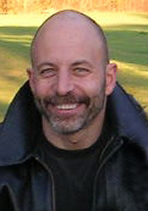 Pellegrino Center for Clinical Bioethics, Georgetown University Medical Center
Pellegrino Center for Clinical Bioethics, Georgetown University Medical Center
Email: jgiordano@neurobioethics.org
Phone: 202-903-5373
Web: www.neurobioethics.org
- Neurotechnology: Practical and ethical issues at the intersection of brain science and society (P,G,S)
- Predictive neurotechnologies in national security and defense: Social obligation or Minority Report? (P,G,S)
- Neural implants and indwelling neurotechnologies: Treatments, enhancements or enablements? (P,G)
- Neuroimaging pain: Technical, neuroethical, and socio-legal issues. (P,G,S)
Prof. James Giordano is Chief of the Neuroethics Studies Program in the Edmund D. Pellegrino Center for Clinical Bioethics, and is on the faculty of the Division of Integrative Physiology, Department of Biochemistry; Interdisciplinary Program in Neurosciences; and Graduate Liberal Studies Program at Georgetown University, Washington, DC, USA. He is CL Clark Fellow in Neurosciences and Ethics at the Human Science Center of Ludwig-Maximilians Universität, Munich, Germany, and was 2011-2012 JW Fulbright Foundation Professor of Neuroscience, Neurotechnology, and Ethics on the medical faculty of Ludwig-Maximilians Universität, Munich, Germany. As well, Dr. Giordano is 2012-2014 William H. and Ruth Crane Schaefer Distinguished Visiting Professor of Neuroethics at Gallaudet University, Washington, DC, and is a Senior Fellow of the Board of Regents of the Potomac Institute for Policy Studies, Arlington, VA, USA.
Prof. Giordano chairs the Capital Consortium on Neuroethics, Legal and Social Issues (www.ccnelsi.com) - bringing together major academic centers in the US Capital Region in lectures, symposia and seminar series focused upon all areas of neurophilosophy and neuroethics, and the National Neuroscience, Ethics, Legal and Social Issues (NELSI) project.
Prof. Giordano is Editor-in-Chief of the journals Philosophy, Ethics and Humanities in Medicine, and Synesis: A Journal of Science, Technology, Ethics, and Policy, Associate Editor for the international journal Neuroethics, Executive Editor-in-Chief of the book series Advances in Neurotechnology: Ethical, Legal and Social Issues (published by Taylor-Francis/CRC Press); and Associate Editor of the book series Augmenting Human Performance (Springer Verlag). The author of over 200 publications in neuroscience, pain, neurophilosophy, and neuroethics, his recent books include: Neurotechnology: Premises, Potential and Problems; Maldynia- Multi-disciplinary Perspectives on the Illness of Chronic Pain (Taylor-Francis/Informa, USA); Scientific and Philosophical Perspectives in Neuroethics (with Bert Gordijn, Cambridge University Press, UK); Pain: Mind, Meaning, and Medicine (PPM Press, US); and Pain Medicine: Philosophy, Ethics, and Policy (with Mark Boswell; Linton Atlantic Books, UK).
His ongoing research addresses the molecular and behavioral neuroscience of pain and analgesia, the neurophilosophy of pain and mind, the neuroethics of pain research and treatment, and the ethical issues arising in and from advancements in science and biotechnology.He is 2012-14 National Distinguished Lecturer, Sigma Xi, National Research Honor Society and 2012-14 National Distinguished Lecturer, IEEE. In recognition of his work, he received the 2012 Klaus Reichert Prize for Medicine and Philosophy, and was elected to the European Academy of Sciences and Arts in 2008.
John G. Hildebrand
Regents Professor, University of Arizona 
Email: jhildebr@email.arizona.edu
Phone: 520-621-6626
- Learning from Insect Brains: Explorations of a Simple Olfactory System (P,G)
- The Most Dangerous Animals in the World: Arthropod Vectors of Disease (P,G)
- Neural Processing of Behaviorally Significant 'Odor Objects' in an Insect's Brain (G,S)
John G. Hildebrand (A.B. Harvard University, Ph.D. Rockefeller University) is Regents Professor of Neuroscience and Professor of Chemistry & Biochemistry, Entomology, and Molecular & Cellular Biology at the University of Arizona (UA) in Tucson. After 16 years of faculty service at Harvard and Columbia Universities, he joined UA in 1985 and headed Neuroscience until 2013. He studies insect nervous systems, mainly the neurobiology of the olfactory system, its roles in behavior, and related areas of chemical ecology and biology of disease vectors. He is author of over 215 research papers and reviews, editor of five books, and past president of several professional organizations. A member of the National Academy of Sciences, he serves as an elected member of its Council. He also is a member of the American Academy of Arts and Sciences, the German Academy of Sciences - Leopoldina, and other academies.
Nola M. Hylton
Professor of Radiology and Biomedical Imaging,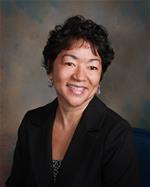 University of California, San Francisco
University of California, San Francisco
Email: Nola.Hylton@ucsf.edu
Phone: 415-885-7511
- Functional MRI techniques for assessing breast cancer response to treatment (P,G,S)
- MRI for breast cancer screening and risk assessment (P,G,S)
Nola Hylton, Ph.D. is Professor of Radiology and Biomedical lmaging at University of California, San Francisco. Her research focuses on the development and clinical optimization of magnetic resonance imaging (MRI) for breast cancer detection, diagnosis and staging. Dr. Hylton serves as Principal Investigator for the multi-center American College of Radiology Imaging Network (ACRIN) clinical trials 6657 and 6698, evaluating advanced breast MRI techniques for assessing breast cancer response to pre-operative chemotherapy. Dr. Hylton also leads two NCI-funded efforts to improve the integration of quantitative imaging (QI) in breast cancer clinical trials through the development of software tools and quality control processes. She is a current member of the ACRIN Breast Committee, American College of Radiology (ACR) Accreditation Committee for Breast MRI, Susan G. Komen Scholars and the Advisory Council for the NIH National Institute of Biomedical Imaging and Bioengineering.
Mary Lee A. Jensvold
Associate Professor at Department of 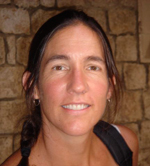 Anthropology & Museum Studies, Primate Behavior & Ecology Program, Central Washington University
Anthropology & Museum Studies, Primate Behavior & Ecology Program, Central Washington University
Email: jensvold@cwu.edu
Phone: 509-963-2215
Web: http://www.cwu.edu/anthropology/mary-lee-jensvold
- Conversations with Chimpanzees: Transforming our View of Nature(P,G,S)
- Animal Welfare: Chimpanzee Relationships With Caregivers and Zoo Visitors (G,S)
- Ethological Roots of Language Acquisition (G,S)
- What? Conversation Repair in Chimpanzee Conversations (G,S)
Mary Lee Jensvold is an Associate Professor in the Anthropology Department and the Primate Behavior and Ecology Program at Central Washington University. She has worked with chimpanzees who communicate with sign language since 1986. In 1985 she received a B.A. in Psychology from University of Oregon, in 1989 a M.S. in Experimental Psychology from Central Washington University, and in 1996 a Ph.D. in Experimental Psychology from University of Nevada-Reno. She is on the board of the Animal Welfare Institute and Friends of Washoe. She specializes in ethological studies of apes, animal intelligence, communication, language, and culture. Her studies include conversational behaviors, private signing, phrase development, chimpanzee to chimpanzee conversation, imaginary play, and artwork in chimpanzees. Other research includes caregiving practices, zoo visitor effects, and public education about chimpanzees. She is active in improving conditions for captive chimpanzees.
Eric J. Jolly
President Science Museum of Minnesota
Email: ejolly@smm.org
Phone: 651-221-9415
Web: www.smm.org
- Why Science? (P)
- Research Based Practice for Addressing STEM Achievement (P)
Dr. Eric Jolly is president of the Science Museum of Minnesota, a museum that serves nearly one million people each year through its hands-on exhibits, giant screen films, special events and unparalleled education programs. Dr. Jolly is a passionate advocate for science literacy for all people, and has published numerous articles, books, and curricula, and lectured around the world on the importance of science learning in contemporary societies and the importance of participation in STEM (Science-Technology-Engineering-and Math) education.
Dr. Jolly works with a number of groups promoting STEM education, including the American Association for the Advancement of Science, the National Science Foundation, the National Action Council for Minorities in Engineering, the National Council for Teachers of Mathematics, and the National Science Teachers Association.
Dr. Jolly has published many scholarly articles and lectured throughout the world. In 2004, he published "Engagement, Capacity and Continuity: A Trilogy For Student Success." He is the author of numerous books, articles, and curricula for students and teachers, including "Bridging Homes and Schools," (a comprehensive resource for teachers of Limited English Proficiency students), and "Beyond Blame: Reacting to the Terrorist Attack." His curricula are used in more than 16 countries and an estimated 400,000 classrooms worldwide.
Dr. Jolly has a PhD in psychology from the University of Oklahoma, and studied physics and psychology as an undergraduate. He holds honorary degrees from the College of Saint Scholastica and St. John’s University.
Yi Lu
Department of Chemistry, Biochemistry,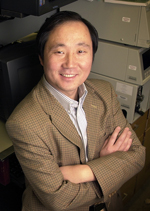 Bioengineering; Department of Materials Science and Engineering; and Beckman Institute for Advanced Science and Technology at the University of Illinois at Urbana-Champaign
Bioengineering; Department of Materials Science and Engineering; and Beckman Institute for Advanced Science and Technology at the University of Illinois at Urbana-Champaign
Email: yi-lu@illinois.edu
Phone: 217-333-2619
Web: Click Here.
- Rational Design of Metalloproteins as Biocatalysts for Sustainable Energy (G,S)
- Functional DNA Nanotechnology and its Application in Sensing, Imaging and Medicine (P,G,S)
Dr. Yi Lu received his B.S. degree from Peking University in 1986, and Ph.D. degree from University of California at Los Angeles in 1992 under Professor Joan S. Valentine. After two years of postdoctoral research in Professor Harry B. Gray group at the California Institute of Technology, Dr. Lu started his own independent career in the Department of Chemistry at the University of Illinois at Urbana Champaign in 1994. He is now Jay and Ann Schenck Endowed Professor of Chemistry and HHMI Professor in the Departments of Chemistry, Biochemistry, Bioengineering and Materials Science and Engineering. He is also a member of the Center for Biophysics and Computational Biology and Beckman Institute for Advanced Science and Technology. His research interests lie at the interface between chemistry and biology. His group is developing new chemical approaches to provide deeper insight into biological systems. At the same time, they take advantage of recently developed biological tools to advance many areas in chemistry. Specific areas of current interests include a) design and engineering of functional metalloproteins as environmentally benign catalysis in renewable energy generation and pharmaceuticals; b) Fundamental understanding of DNAzymes and their applications in environmental monitoring, medical diagnostics, and targeted drug delivery; and c) Employing principles from biology for directed assembly of nanomaterials and its applications in photonics and sensing. Dr. Lu has received numerous research and teaching awards, including the Fellow of the American Association for the Advancement of Science (2007), Early Career Award, Society of Biological Inorganic Chemistry (2007), Howard Hughes Medical Institute Professor Award (2002), Camile Dreyfus Teacher-Scholar Award (1999), Alfred P. Sloan Research Fellowship (1998), Research Corporation Cottrell Scholars Award (1997), and the Beckman Young Investigators Award (1996).
Jody A. Roberts
Director, Center for Contemporary History and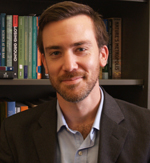 Policy Chemical Heritage Foundation
Policy Chemical Heritage Foundation
Email: jroberts@chemheritage.org
Phone: 215-873-8281
Web: Click here
- Sensing Change: How Art and Science work to Communicate Environmental Change (PGS)
- Re-inventing Green Chemistry: Alternative Histories for a Sustainable Science (GS)
- From Inception to Reform? An Oral History of the Toxic Substances Control Act (GS)
Roberts' work explores the intersections of emerging molecular sciences and public policy and the ways in which tensions brought about between the two get resolved. He received advanced degrees in science and technology studies from Virginia Tech, where he cultivated an interest in the practice of the molecular sciences and the ways in which they are shaped by internal architecture and design (e.g., technologies of the laboratory) and the politics of the broader world (e.g., chemical regulations). Those interests became the basis for the projects that Roberts conducts in the Center for Contemporary History and Policy at CHF. Roberts lectures in the Science, Technology, and Society Program at Drexel University and in the History and Sociology of Science Department at the University of Pennsylvania and is a senior fellow in the Environmental Leadership Program. Roberts holds an undergraduate degree in chemistry from Saint Vincent College.
J. Carlos Santamarina
Professor Georgia Institute of Technology
Email: jcs@gatech.edu
Phone: 404-894-7605
Website: http://pmrl.ce.gatech.edu/
- Energy: A Geo-Centered Perspective(P,G,S)
- Bio-Mimetics: From Nature to Engineering (P,G,S)
- Particulars of the Particulate: Phenomena in granular materials at the particle/pore-scales (P,G,S)
Santamarina and his team explore the scientific foundations of soil behavior and subsurface processes using unprecedented particle-level and pore-scale testing methods, combined with numerical methods and high-resolution process monitoring systems. This conceptual and experimental framework is advancing the study of phenomena and the development of solutions in energy geotechnology with contributions to: efficiency and conservation, resource recovery (petroleum, methane hydrates), energy geo-storage, and energy waste (carbon geological storage, fly ash and nuclear waste). Two books and more than 250 publications summarize salient concepts and research results. His former doctoral students are faculty members or lead engineers at foremost universities and organizations worldwide. Dr. Santamarina is a frequent keynote speaker at international events, a member of both Argentinean National Academies, and a member of committees at the USA National Academies. He holds a Ph.D. from Purdue University, M.S. from the University of Maryland and BSc from Universidad de Cordoba.
Michael Spencer
Professor Department of Electrical Engineering, Cornell University 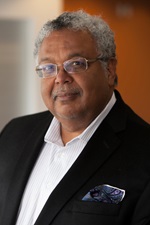
Email: spencer@ece.cornell.edu
Phone: 607-351-2848
- Van der Waals Epitaxy of Graphene and 2D Materials
- III-Nitride devices for high voltage grid applications
- Radio isotope nuclear batteries for medical implants and sensors
- The promise of 2D materials
Electrical Engineer, Computer Scientist and Engineering Professor Michael G. Spencer was born on March 9, 1952 in Detroit, Michigan. He earned his B.S. degree in 1974 and his M.S. degree in 1975, both in electrical engineering from Cornell University. Spencer worked at Bell Laboratories before receiving his Ph.D. degree in electrical engineering from Cornell University. In 1984, he joined the faculty of Howard University as an assistant professor and founded the Materials Science Center for Excellence. He spent the next eighteen years at Howard University, becoming a full professor in 1990. He returned to his alma mater Cornell University in 1999 as professor of electrical engineering. He served as associate dean of research and graduate studies for the College of Engineering from 2002 to 2008. Spencer directed the Wide Bandgap Laboratory and co-founded Widetronix. Spencer has written over 130 publications and has also co-authored eleven United States patents.
James L. Van Etten
William B. Allington Distinguished Professor University of Nebraska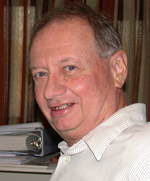 -Lincoln
-Lincoln
Email: jvanetten1@unl.edu
Phone: 402-472-3168
Website: http://www.pbcv.org
- Giant Viruses Change the Perception of Viruses (G)
- Algae as Candidates for Biofuel (G)
James Van Etten is the William B. Allington Distinguished Professor of Plant Pathology at the University of Nebraska-Lincoln. Dr. Van Etten received his PhD in 1965 from the Department of Plant Pathology at the University of Illinois. After spending a year as a NSF postdoc in the Department of Genetics at the University of Pavia (Italy), he joined the UNL Plant Pathology Department. His early research at UNL focused on two topics, the biochemistry of fungi, primarily spore germination, and the characterization of the unusual bacteriophage phi6. For the last 30+ years, his research has focused on the isolation and characterization of large icosahedral, dsDNA-containing, plaque-forming viruses that infect certain unicellular, eukaryotic chlorella-like green algae. These viruses are ubiquitous in fresh water from all over the world. The chlorella viruses have genomes as large as 370 kb that contain as many as 400 protein encoding- and 16 tRNA encoding-genes.